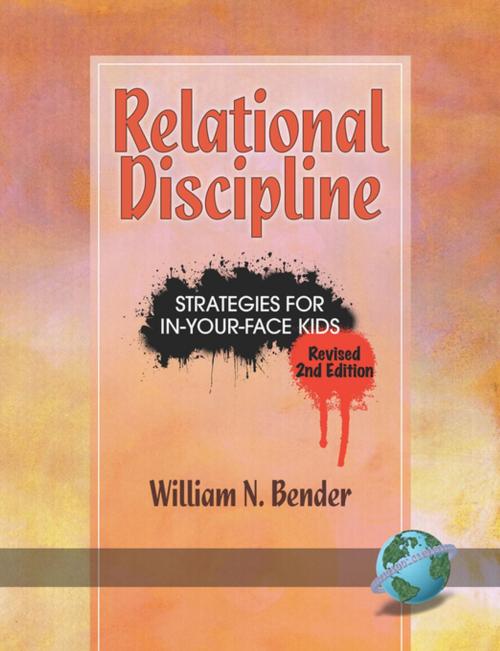Relational Discipline
Strategies for InYourFace Kids (Revised 2nd Edition)
Nonfiction, Reference & Language, Education & Teaching, Special Education, Higher Education, Teaching, Teaching Methods| Author: | William N. Bender | ISBN: | 9781607529484 |
| Publisher: | Information Age Publishing | Publication: | January 1, 2008 |
| Imprint: | Information Age Publishing | Language: | English |
| Author: | William N. Bender |
| ISBN: | 9781607529484 |
| Publisher: | Information Age Publishing |
| Publication: | January 1, 2008 |
| Imprint: | Information Age Publishing |
| Language: | English |
This exciting work offers an entirely new way to address the discipline problems that have become so common in our public schools! Dr. Bender's emphasis on relationships as the basis of all effective discipline has now been widely recognized as cutting edge within the field, and this book presents many practical strategies that teachers can use to manage even the most disruptive students in the class—the kids that always seem to be "inyourface." Strategies include many triedandtrue ideas that are now reinterpreted based on their impact on the relationship between the student and the teacher. Further, many new strategies, such as "Responsibility strategies," "Strengthbased assessment," and "Let's Make a Deal" are presented, with the overriding emphasis on building positive relationships with even the most challenging and demanding students. This paradigm shift toward the emphasis on positive relationships represents the first truly new look at discipline and classroom management in over thirty years—since the growth of behavioral management plans. As teachers prepare for the classrooms of today, they will need these practical, workable, and research proven strategies, embedded within a new theory of discipline in the classroom.
This exciting work offers an entirely new way to address the discipline problems that have become so common in our public schools! Dr. Bender's emphasis on relationships as the basis of all effective discipline has now been widely recognized as cutting edge within the field, and this book presents many practical strategies that teachers can use to manage even the most disruptive students in the class—the kids that always seem to be "inyourface." Strategies include many triedandtrue ideas that are now reinterpreted based on their impact on the relationship between the student and the teacher. Further, many new strategies, such as "Responsibility strategies," "Strengthbased assessment," and "Let's Make a Deal" are presented, with the overriding emphasis on building positive relationships with even the most challenging and demanding students. This paradigm shift toward the emphasis on positive relationships represents the first truly new look at discipline and classroom management in over thirty years—since the growth of behavioral management plans. As teachers prepare for the classrooms of today, they will need these practical, workable, and research proven strategies, embedded within a new theory of discipline in the classroom.















